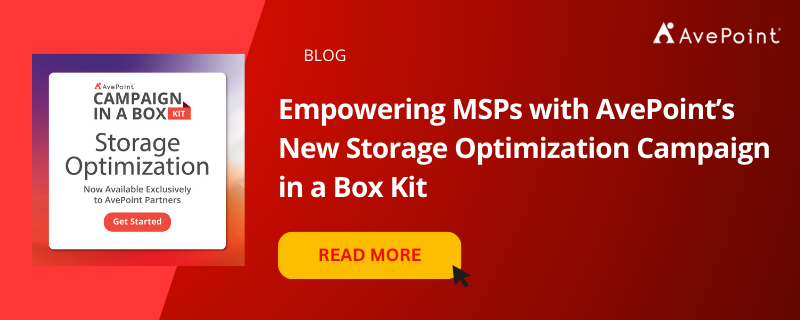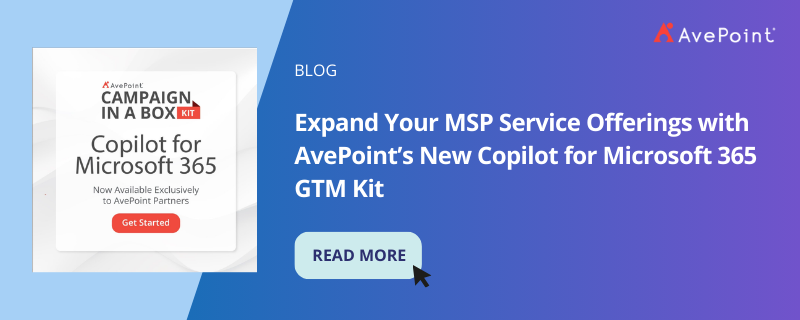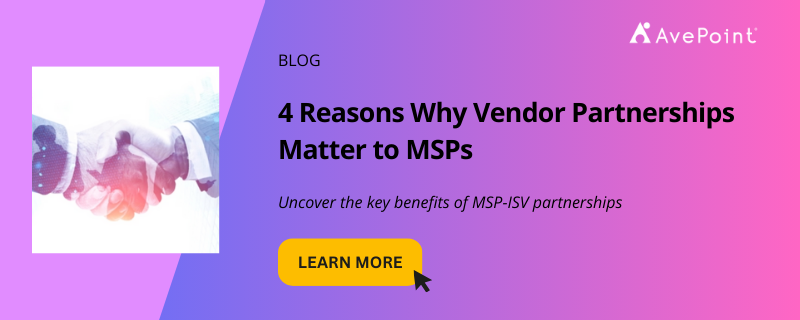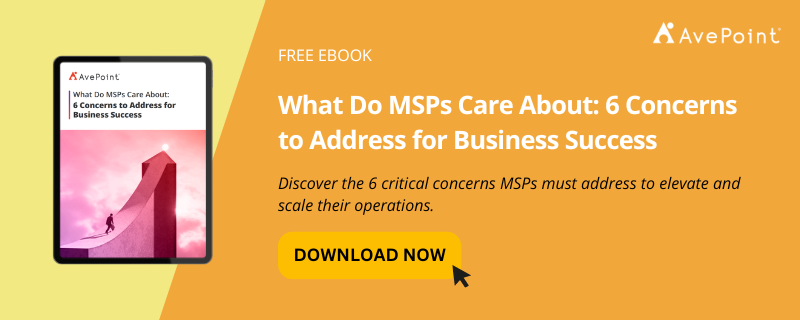The Recurring Revenue Route to Stability for MSPs


For Managed Service Providers (MSPs), achieving sustainable profitability hinges significantly on generating recurring revenue. In fact, top-tier MSPs rely their business on it. According to an annual review of high performing MSPs, Channel Futures’ MSP 501, the median revenue for recurring revenues for 2024 is at $4.5 million, out of the median revenue of $6.8 million.
Focusing on recurring revenue isn’t just smart, it’s survival. It shifts MSPs from sporadic project-based revenue into a consistent income stream, which can support day-to-day operations and positively impact long-term growth.
However, our Global MSP Survey showed that the majority of MSPs (63%) make less than half of their revenue from recurring services, which underscores the need for MSPs to implement measures that will bring consistent sources of income.
In this blog, we'll dive into why recurring revenue is a must-have for long-term success and the best strategies to achieve it.
Benefits of Achieving Recurring Revenues
MSPs can reap two key benefits from working towards having recurring revenues:
1. Stronger Client Relationships
One of the key aspects in acquiring a stable recurring revenue is having positive client relationships. You should not treat the client as a single transaction that will help bring in revenue for the current period. MSPs must always keep in mind that nurturing every relationship – through a satisfactory service – is a good start to a lasting relationship.
The next step to maintaining clients is being proactive with services they may need. For example, if you have a client that needs to migrate from an on-premises to a cloud environment, you can end your client relationship with that service, and move on after that. But it can also become an opportunity to nurture your relationships with your clients by helping them assess which areas can be improved in their digital workspaces.
Onboarding clients to ongoing services helps you move beyond the transactional nature of one-time projects.
Regular services such as weekly security updates and daily monitoring can provide added value for you as an MSP. This means more than being their service providers, you become their trusted partners.
2. Stable Income
Long-standing contracts equal stable cash flow. Through recurring revenues, you can receive payments regularly – monthly or annually – from your clients.
For example, a medium-sized company signs a three-year contract with you to provide data governance services for $3,000 monthly. This agreement provides predictable income for your business over the contract duration, allowing you to make operational strategies without worrying over periods where you do not have new clients onboard.
A more accurate forecast of incoming revenue helps you manage operational expenses, invest in new tools and employee training, and scale operations.

Strategies for Achieving Recurring Revenue
The managed services market was valued at approximately $267.3 billion in 2023 and is expected to grow at a compound annual growth rate (CAGR) of 13.6% until 2030, according to Grand View Research. This offers MSPs the chance to attract new clients and build a stable recurring revenue stream through diversified offerings.
Here are ways to effectively keep a steady revenue stream from clients:
Cross-Sell and Upsell Services
Among MSP customers, almost half (48%) are challenged with adopting digital collaboration tools, and 23% face difficulties on-premises to cloud migration, our Global MSP Survey showed. In effect, 66% of MSPs now provide on-premises cloud migration, and 63% offer cloud-to-cloud transitions.
Clients jumping into the cloud opens opportunities for MSPs to provide collaboration security services. As an AvePoint partner, you can offer them seamless and secure migration services, as well as ongoing protection and governance for their cloud environments. This enables you to cross-sell and upsell your services, as you can provide a holistic solution that covers the entire collaboration lifecycle. For example, after migrating your customers to the cloud, you can offer them security services, such as:
- Advanced Data Resilience Services: Protect your clients Microsoft 365, Google Workspace, and Salesforce data in a single pane of glass. Backups are App-Aware, Logically Air-Gapped, and Immutable. Options for AvePoint managed, BYOS and BYOK available. 20X Faster backup and recovery for SharePoint, Exchange and OneDrive available, powered by Microsoft 365 Backup Storage.
- Data Governance: Find and monitor overexposed data, automate workspace settings to prevent exposure, and manage the lifecycle of Microsoft 365 workspaces to prevent sprawl and maintain control.
- Cost Optimization: Quickly reduce cloud storage costs for customers with ROT assessment and remediation packages, compliant exports, and long-term retention for future restores.

- Adoption and Analytics: Offer audit insights, ROI analysis, engagement tracking, and comprehensive training to maximize employee productivity.
- AI Readiness and Implementation: Some 71% of small and medium businesses will continue or begin investing in AI. This puts MSPs in a prime position to offer AI-related solutions, which can help maintain longstanding relationships with existing clients.

Bundle Services
Another viable option for MSPs is to bring services together into bundled offerings at a lower price than if they get these services individually. This promotes a win-win situation for the businesses and MSPs.
Bundling services allow businesses to get more services that they need at a cheaper cost, delivering added value for them, and you increase your sales volume by offering multiple services in one transaction. This move also increases customer interaction, and if implemented correctly, can boost customer satisfaction, which can make them consider your services for the longer term.
A good option is to create multiple options, allowing businesses to choose which bundles fit their needs and budget. For example, you can bundle cloud migration with backup, or offer a complete suite of data governance solutions, such as data lifecycle management, risk monitoring, and policies implementation.
Offering tiered services, from basic to premium packages can also be an option, which allows businesses to align their budget with your service offerings.
To help clients understand the value of these offerings, you can present cost differences of taking individual packages and why taking the full bundle helps meet their operational needs.
Team Up with a Reputable Partner
Having a reliable partner can be a beneficial boost to your business. Tapping solutions providers, such as Independent Software Vendors (ISVs) can help scale your services, through their readily available suite of software solutions. In fact, our Global MSP Survey found that 42% of MSPs work with ISVs to gain access to their solutions.
At their core, MSPs and ISVs share a common commitment: to empower their users and customers with technologies that drive tangible business value. ISVs build their offerings specifically to respond to business needs and create special programs for MSPs. Meanwhile, MSPs work to implement and manage these technologies for their clients. This synergy helps ensure that you can easily respond to clients’ requirements when they need it, leading to the generation of recurring revenues.
By teaming up with an effective ISV, MSPs can also gain access to training and certifications that help them stay abreast of knowledge to perform their tasks effectively.

Capitalizing on Recurring Revenue Strategies for MSP Growth
Like any other business, having a continuous source of revenue is essential. In the MSP space, this becomes more complex with the fast-paced evolution of technologies along with ever-changing client needs.
The demand for managed services exists. But to unlock recurring revenues, MSPs must understand customer needs and deliver value. Achieving this lies in having the necessary strategies, tools, and partnerships. Incorporating all these will help provide a competitive edge and help your business scale.
Looking to uncover more best practices to boost your MSP business? Discover the six critical concerns that MSPs must address in this eBook.


Hazel Foz is a Content Marketing Specialist at AvePoint, covering Channel Marketing and Partner Programs. With years of experience writing for global e-commerce and B2B technology organizations, Hazel creates content that helps Managed Service Providers (MSPs), value-added resellers (VARs), and other partners navigate the rapidly changing digital landscape with insights on business growth and scalability, vendor support, integration, and more.


